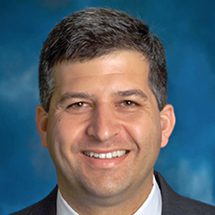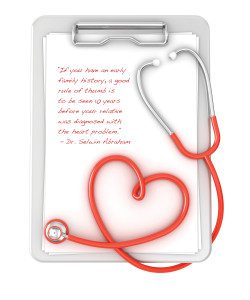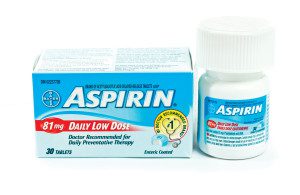We’ve all scolded our husbands, brothers, or fathers for eating too much red meat or sprinkling excessive salt. We’re used to hearing that men need to worry about their cholesterol levels and watch their egg intake. However, what many of us may not know is that men aren’t the only ones suffering from heart attacks caused by high cholesterol and other factors.
“The first thing women need to know is that more women are dying of heart disease than men are and incidences are increasing,” says Dr. Santhi Adigopula, a cardiologist with Hamilton Cardiology Associates in Dalton, Ga. “We need to come away from the perception that heart disease is a man’s disease.”
Bottom line: Anyone can experience heart problems. However, it is important to understand that symptoms of a cardiac event often manifest differently in men and women. “Approximately 40% of the time women do not have typical symptoms of chest pain and therefore are less likely to seek treatment immediately,” says Dr. Poonam Puri, a cardiologist at Erlanger Health System. If you know what you’re looking for, you’ll be better equipped to help yourself or a loved one in the event of a heart problem.
By Grace J. Humbles
Full PDF here.
Heart Attack Signs
Our heart muscle is essential to the life of our bodies. When any part of it is blocked from getting oxygen-rich blood, a heart attack will occur. It’s essential for both men and women to know the symptoms of a heart attack in order to receive help as quickly as possible.
In Women
If you’re a woman, it’s important to stay in-tune with your body so that you can recognize symptoms of a heart attack. “Some of the ‘classic’ symptoms are sometimes not what women feel. Symptoms can be unpredictable,” says Dr. Selwin Abraham, a cardiologist at Skyridge Medical Center. “Doctors are now aware of this and are keen on what those subtle symptoms are.” According to the American Heart Association (AHA), women should stop and call 9-1-1 if they experience any of these symptoms:
- pain in your chest that lasts longer than just a few minutes, or that comes and goes – this may feel like an ache, pressure, or squeezing in your chest
- pain or unusual discomfort in either of your arms, back, neck, or jaw
- stomach pain – may feel like heartburn and can move down from your chest to your abdomen
- shortness of breath
- anxiety or panic
- a cold sweat, nausea, or lightheadedness
- fatigue
According to the AHA, women are more likely to experience these symptoms in addition to, or instead of, chest pain, which is often thought of as the main symptom of a heart attack. “You can’t forget symptoms such as nausea, shortness of breath, jaw pain, or sweating,” says Dr. Robert Berglund, a cardiologist at The Chattanooga Heart Institute at Memorial. “I think women have a tendency to worry about their spouses or other people in their lives and don’t think it could happen to them. Women have to recognize that their number one cause of death – more than lung and breast cancer combined – is cardiovascular disease.”


M.D., F.A.C.C.
Erlanger Health System
In Men
Men may also experience shortness of breath and discomfort in either of their arms, back, or jaw. In fact, they may experience any of the symptoms women may suffer from when experiencing a heart attack, though the NIH reports that women are more likely to experience light-headedness or dizziness. The NIH also reports that men, more often than women, may break out in cold sweats and have pain specifically in their left arm when experiencing a heart attack. “Hormonal differences and artery size are some of the factors that can contribute to different symptoms in men and women,” Dr. Berglund explains.
It’s easy to think of a heart attack as something that happens swiftly and without warning, as heart attacks are often portrayed this way in movies. Yet while these quick attacks may occur, more often a heart attack begins with slower warning signs that give a person time to get help.
“If you’re experiencing any of these symptoms and think you may be having a heart attack, seek emergency help and take a chewable aspirin,” advises Dr. Puri. “Any time you suspect something is not right, or you’re having any of these symptoms, do not ignore or neglect them. You have to catch them in time before heart damage has been done.”
Risk Factors
Specific to Women
Risk factors for women include common heart disease risk factors such as high cholesterol and obesity. However, in addition to the factors that affect men, the Mayo Clinic says women should also be aware of a number of additional risk factors, including:
- diabetes – although a risk factor for men, it is considered a higher risk factor for women
- metabolic syndrome – a mix of factors including stomach fat, high blood pressure, high blood sugar, and high triglycerides
- mental instability – depression and stress may make you more likely to experience a heart attack
- post-menopause – low estrogen may contribute to a woman’s risk of heart disease and heart attack
- preeclampsia – a common problem with high blood pressure during pregnancy is also a unique risk factor for women


Skyridge Medical Center
Specific to Men
Men have their own unique risks in relation to heart disease and heart attack. Men should know that their age factors into their risk. According to the Mayo Clinic, men over the age of 45 are more likely to experience a heart attack. They also report that smoking, high blood pressure, diabetes, and obesity may be precursors to a heart attack. The NIH reports that high cholesterol and triglyceride levels also contribute to a man’s risk of heart attack.
Dr. Abraham recommends that both men and women be evaluated by their doctor beginning at age 35 if they have no family history. “If you have an early family history, a good rule of thumb is to be seen 10 years before your relative was diagnosed with the heart problem,” Dr. Abraham says.
Preventing a Heart Attack
Monitoring your risk factors and working against them can go a long way toward preventing heart attacks. Although not all risk factors are within your control – for example, you have no control over your family history – there are many factors you have the power to change.


M.D., F.A.C.C.
Hamilton Cardiology Associates, Dalton, GA
Lifestyle Changes
According to Dr. Adigopula, pursuing a healthy lifestyle is the most important part of preventing a heart attack. Simple changes in daily choices can add up to a large change in your health. If you are a smoker, consider joining a program to help you quit or asking your doctor about the best way to remove smoking from your life. “One thing that is important to understand is that compared to male smokers, women who smoke are nearly two times as likely to die from sudden cardiac death,” says Dr. Adigopula.
If you have a habit of being inactive, think of fun ways you can bring at least 30 minutes of activity into your life. “Try to do some sort of physical activity almost every day, keep your body weight down, and monitor blood pressure and cholesterol,” Dr. Adigopula suggests. “Everyone’s lifestyle is modifiable.”
Also, try to keep stress at minimum. “Stress has a negative effect on the heart because when you’re stressed out, endorphins are released in the heart making it beat harder. That leads to high blood pressure which can accelerate blockages in the heart. Daily exercise is the best way to keep from getting stressed out because it relaxes the body so that it can accommodate stress more easily,” advises Dr. Abraham.
Work with your doctor to control medical conditions that contribute to your risk for heart attack. If you suffer from high blood pressure, cholesterol, or diabetes, talk to your doctor about medications, diet plans, and other lifestyle changes that can level those conditions.
Family history can also contribute to your risk factors, but unfortunately that is something no one can change. “You can’t change family history, but because you have one, you might be a little more cognizant of how you feel and what you do – don’t smoke, take care of yourself, keep your lipids down, and be aware of other indications of heart attack other than the typical symptoms,” Dr. Berglund says.
If you currently don’t suffer from these risk factors, continue to live out a healthy lifestyle. “Try to eat a heart-healthy diet. Decrease your salt and cholesterol intake, consume food that is high in fiber, eat whole grains, and eat lots of fruit and


M.D., F.A.C.C.
The Chattanooga Heart Institute at Memorial
vegetables,” says Dr. Puri.
Stay active and keep harmful substances like illegal drugs and cigarettes out of your system. If you have children, raise your children to enjoy this kind of healthy lifestyle and you will put them on the path to heart health at a young age.
Treatment for Heart Attacks
It’s vital to notice early warning signs of a heart attack so that you can receive treatment as soon as possible. At the onset of symptoms, it’s important to take certain medications. “Aspirin is the most


Parkridge Medical Center
important type of medication, and you can start taking that at home. When you call the ambulance, they’ll administer oxygen, aspirin, and nitroglycerin,” says Dr. Selcuk Tombul, a cardiologist at Parkridge Medical Center. After doctors have confirmed that you have experienced a heart attack, you may be given medications including blood thinners, anti-clotting medications, and beta blockers, which help relieve some of the burden from your heart.
In addition to medication, medical procedures such as an arteriogram or bypass surgery may be recommended to treat your heart attack. “Doctors will make a quick determination about whether you need an urgent balloon angioplasty and stent or bypass surgery. The key thing for the patient is to take aspirin and call 9-1-1, and everything should fall into place,” says Dr. Tombul. The NIH recommends developing an “emergency action plan” in case you or someone you love experiences a heart attack. This action plan should include a list of any and all medications you take, any allergies you have, your doctor’s phone number, and an emergency contact number. Consider keeping this list in your wallet or somewhere else on your person.
It can greatly help 9-1-1 responders and medical professionals in the emergency room as they work to treat your heart attack.
Your heart is the center of your body’s activity. It’s important to remember to take care of your heart before a heart attack occurs. Living a heart-healthy lifestyle may help prevent a heart attack from occurring and knowing the risk factors in your own life can put you on the right track toward heart health and peace of mind.




